How to Properly Store Calcium Chloride
Vaporizer™ is often asked how our Calcium Chloride products should be stored during the summer months.
Here are some of the best practices for proper storage of packaged Calcium Chloride.
- Store in a dry area
- Tightly reseal opened bags after each use.
- If storing product outside, palletized product should be covered and stored on asphalt or concrete where moisture will not puddle.
- Non-shrouded palletized products should be stored indoors or under a waterproof covering away from children and pets.
Keep in mind five key points regarding Calcium Chloride chemical properties
1.
Calcium Chloride is hygroscopic, which means it absorbs moisture from the air. This can cause clumping and caking in dry Calcium Chloride products, like pellets and flakes.
2.
Calcium Chloride is deliquescent, meaning it can absorb enough moisture from the air to become liquid.
3.
Solid Calcium Chloride products release a large amount of heat when dissolved in water.
4.
Chlorides can accelerate the corrosion of common metals like steel, copper, and brass in the presence of water and oxygen.
5.
Calcium Chloride brines are electrically conductive, so there is a risk of electric shock if your hands are wet during and after handling Calcium Chloride and you then come in contact with energized electrical equipment.
Vaporizer™ Calcium Chloride packaging:
- Solid Calcium Chloride products are available in plastic bags that are heat-sealed. Pails are heavy-duty plastic with Snap-On lids.
- Packaged products are delivered on wooden pallets, which are either covered with a plastic shroud or stretch-wrapped. The package type, size, and pallet configuration vary.
- Product inventory should be managed on a first-in, first-out basis to minimize moisture absorption over time. Damaged bags should be used ahead of others.
- Full pallets of bags can typically be stacked three high in a 2-2-1 configuration with the top row straddling the center line of the first two rows.
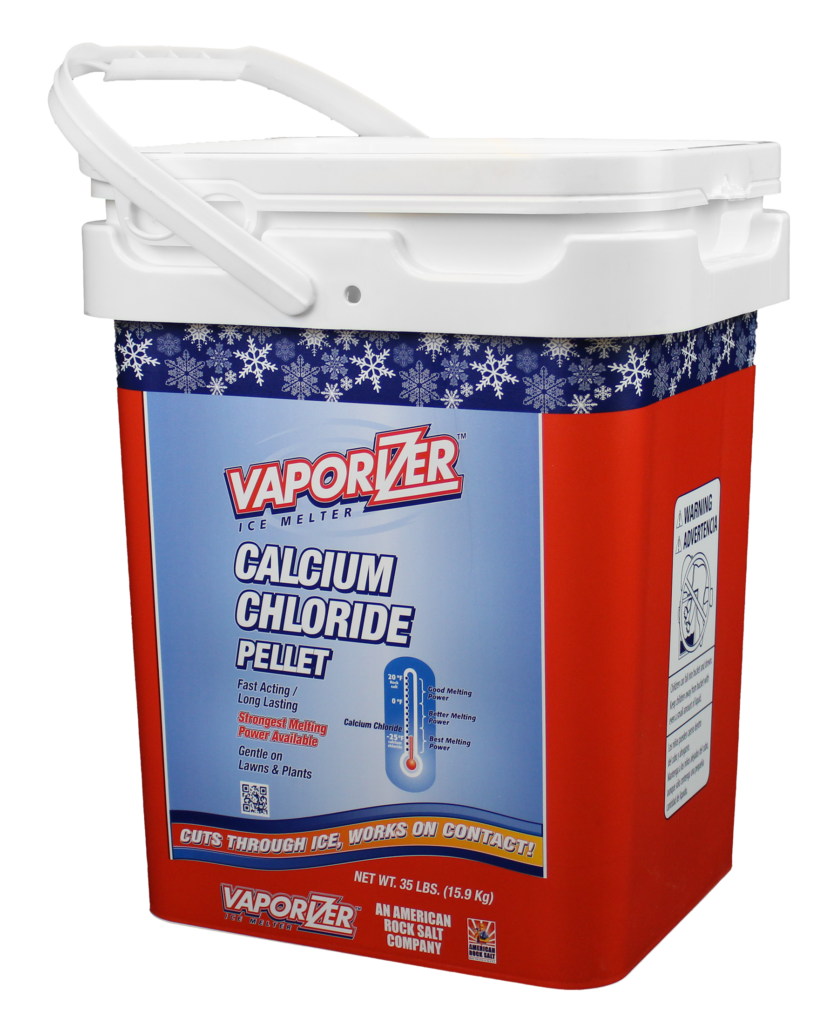
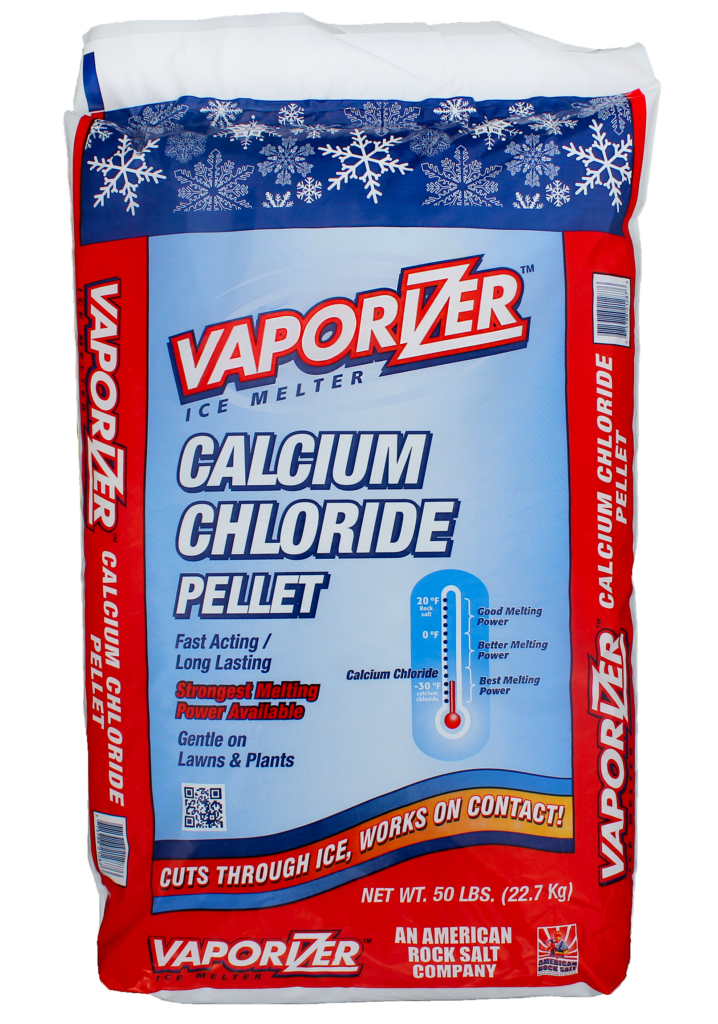
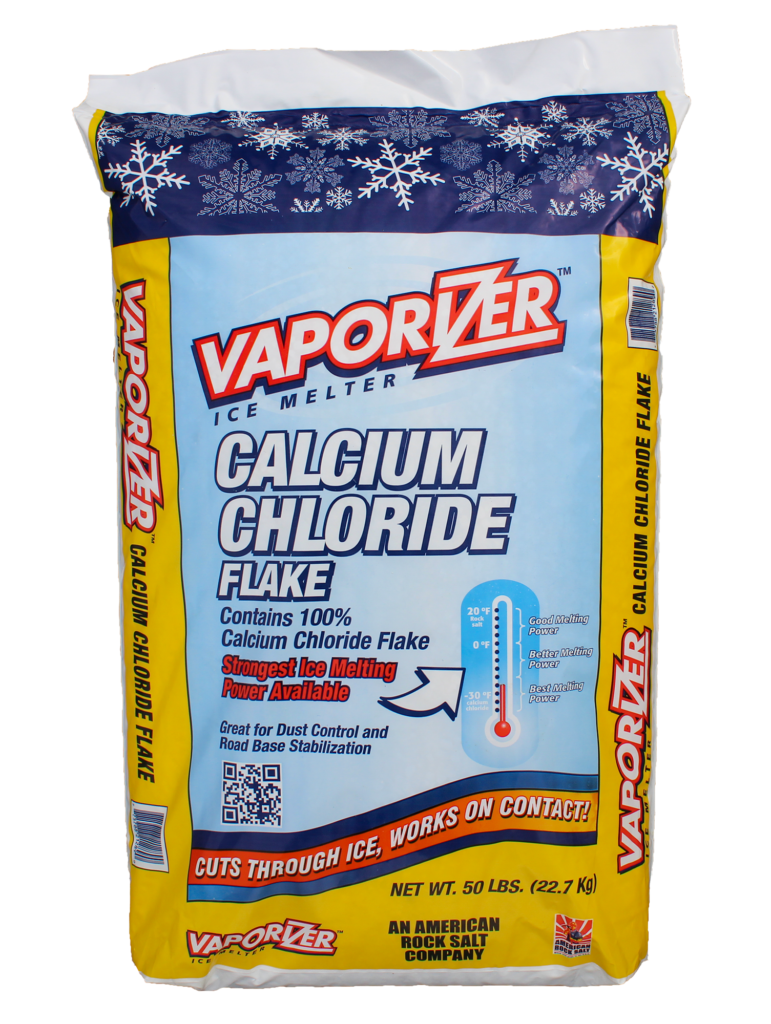
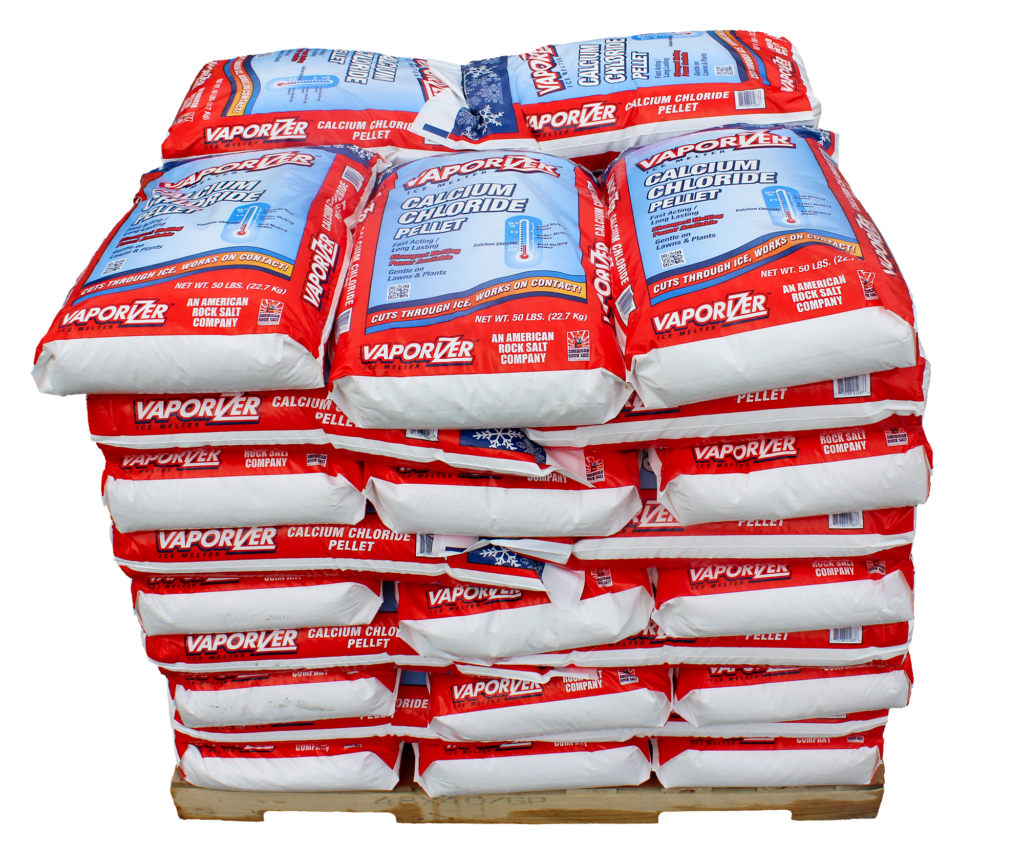
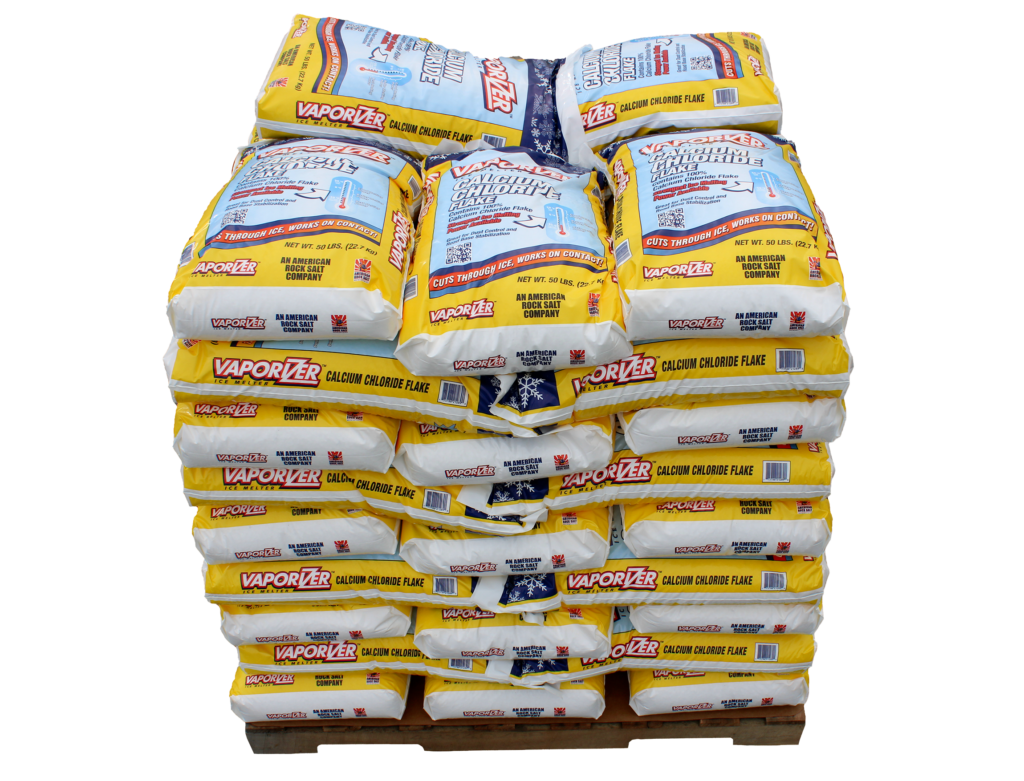
The end user is responsible for following guidelines contained in the SDS and maintaining compliance with all federal, state, provincial, and local requirements when handling and storing Calcium Chloride.
